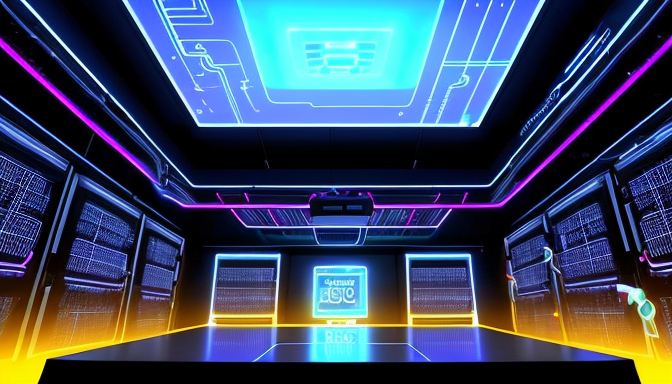As we plunge deeper into the age of artificial intelligence, it’s crucial to recognize that with great power comes great responsibility. AI is transforming industries, enhancing efficiency, and even revolutionizing our daily lives. But have you ever stopped to think about the potential risks lurking beneath the surface? This article explores the often-overlooked dangers associated with AI, including ethical concerns, security threats, and societal impacts that demand our attention as this technology continues to evolve.
When we talk about AI, we can’t ignore the moral dilemmas it presents. Imagine a world where algorithms determine who gets a job or who receives a loan—sounds a bit scary, right? Bias in AI systems can lead to unfair treatment, raising questions about accountability. Who do we blame when an AI makes a mistake? The developer? The company? Or the AI itself? To navigate these murky waters, we need ethical guidelines to ensure that AI serves humanity positively.
Now, let’s dive into the security risks that come with AI technology. While AI can bolster security measures, it can also open doors to vulnerabilities. Think about it: AI systems can be manipulated to breach data privacy, leading to catastrophic cyber threats. The potential for malicious use of AI technologies, such as deepfakes or autonomous weapons, is alarming. As we embrace AI, we must also fortify our defenses and stay one step ahead of those who would misuse this powerful tool.
The Ethical Implications of AI
As we dive into the world of artificial intelligence, we can’t help but encounter a myriad of ethical dilemmas that demand our attention. Imagine a world where machines make decisions that could impact our lives—sounds futuristic, right? But here we are, facing the reality that AI can perpetuate bias and inequality. When algorithms are trained on biased data, they can inadvertently reinforce stereotypes and discrimination. For instance, if an AI system used for hiring is fed historical data that reflects gender or racial biases, it may continue to favor one group over another, leading to unfair outcomes.
Moreover, accountability in AI is a pressing concern. If an autonomous vehicle gets into an accident, who is responsible? The manufacturer, the programmer, or the user? This question is like a tangled web, and without clear ethical guidelines, we risk creating a chaotic landscape where no one takes responsibility. As AI technology evolves, we need robust frameworks to ensure that these systems are developed and deployed ethically.
In light of these challenges, it’s crucial to foster a dialogue around the ethical implications of AI. We must advocate for transparency, fairness, and accountability in AI systems. By doing so, we can create a future where technology serves humanity rather than undermines it. Are we ready to take this responsibility seriously? The answer could shape our digital future profoundly.

The Security Risks of AI
As we dive deeper into the world of artificial intelligence, it’s crucial to recognize the security risks that come along for the ride. Imagine a world where our personal data is as vulnerable as a house of cards in a windstorm. AI systems, while revolutionary, can also be a double-edged sword, exposing us to various threats that can compromise our privacy and security.
One of the most pressing concerns is data privacy breaches. With AI’s ability to process vast amounts of information, it’s not just our personal details at stake; it’s our entire digital footprint. Hackers can exploit weaknesses in AI algorithms, gaining access to sensitive data that can lead to identity theft or financial fraud. It’s like giving a thief the keys to your digital home!
Moreover, the rise of AI has also paved the way for cyber threats. Malicious actors can use AI technologies to automate attacks, making them faster and more efficient. For instance, AI can be employed to create sophisticated phishing schemes that are nearly indistinguishable from legitimate communications. This means that even the most vigilant among us can fall victim to these cunning tactics.
Finally, we must consider the potential for malicious use of AI technologies. From deepfakes that can ruin reputations to autonomous weapons that can make life-and-death decisions, the implications are staggering. As we continue to innovate, we must ask ourselves: are we prepared to face the consequences of our creations? The answer lies in our ability to establish robust security measures and ethical guidelines to navigate this uncharted territory.
Frequently Asked Questions
- What are the main ethical concerns associated with AI?
The ethical concerns surrounding AI often revolve around issues like bias in algorithms, lack of accountability, and the necessity for ethical guidelines. Imagine a world where decisions about hiring or loans are made by a machine that doesn’t understand human nuances—scary, right?
- How can AI pose security threats?
AI can introduce serious security risks, including data privacy breaches and cyberattacks. Think of it like a double-edged sword; while AI can enhance security measures, it can also be exploited by malicious actors to create sophisticated attacks.
- What societal impacts should we be concerned about?
The societal impacts of AI are vast, from job displacement to changes in social interactions. It’s like a wave that can either uplift us or wash away our traditional ways of living—it’s crucial to navigate this carefully!
- How can we ensure AI is developed ethically?
Ensuring ethical AI development requires collaboration among developers, policymakers, and ethicists. Establishing clear guidelines and accountability measures is like building a safety net—essential for catching any potential falls.